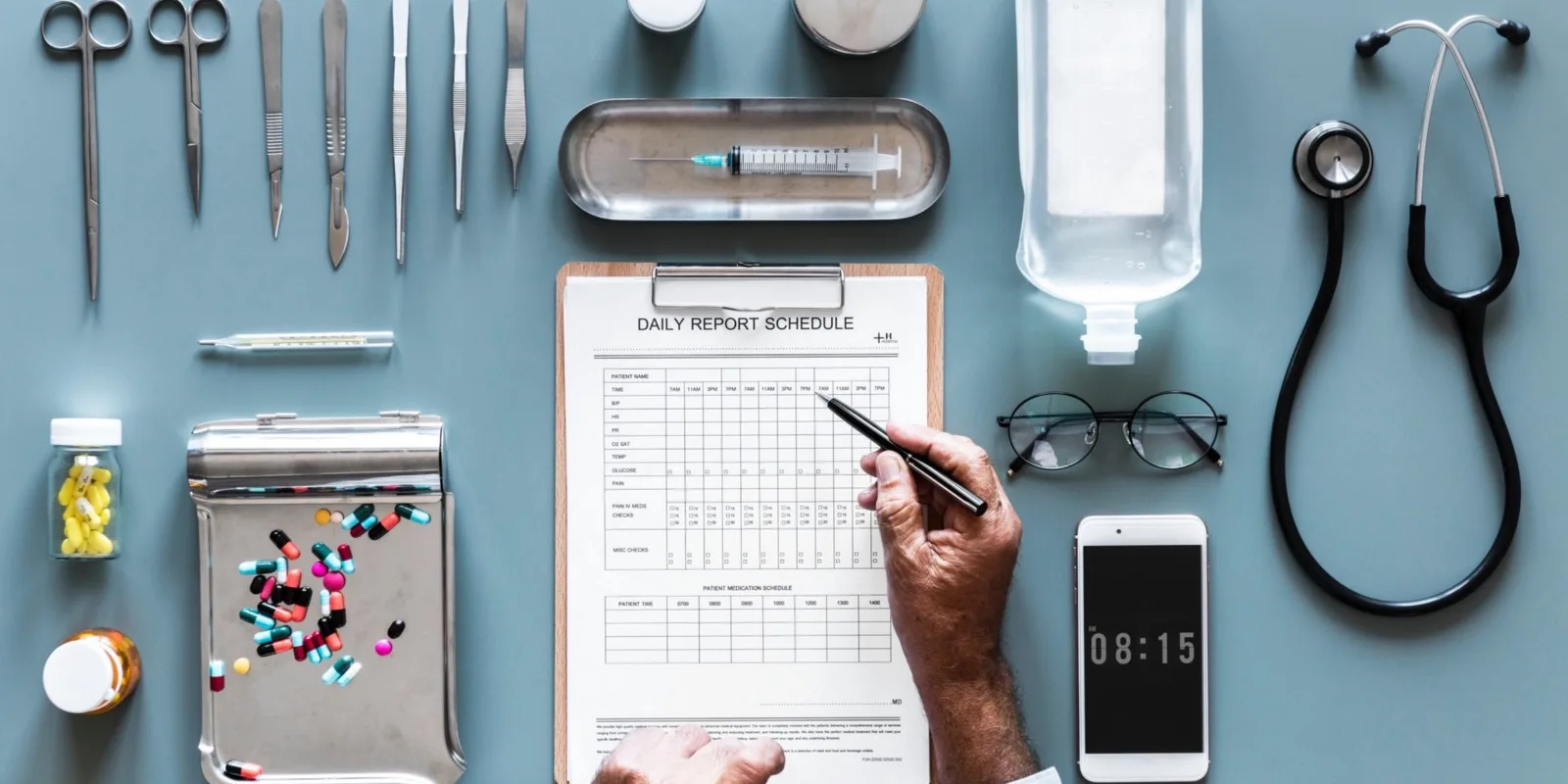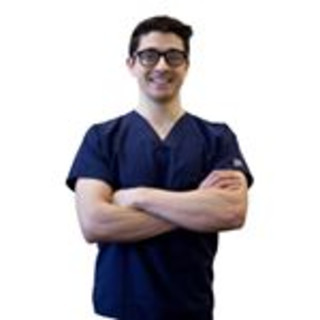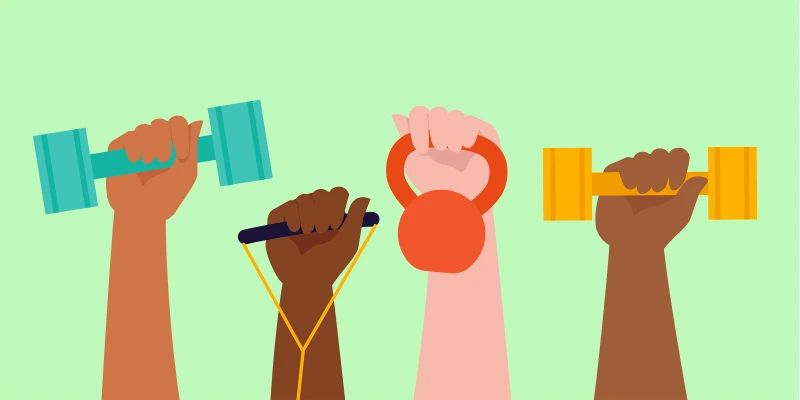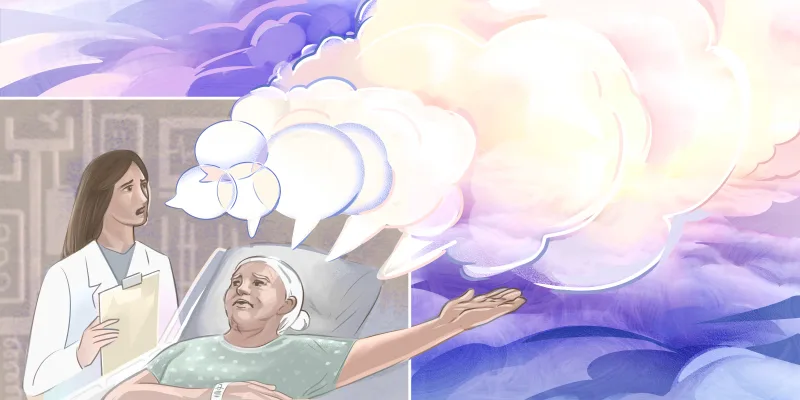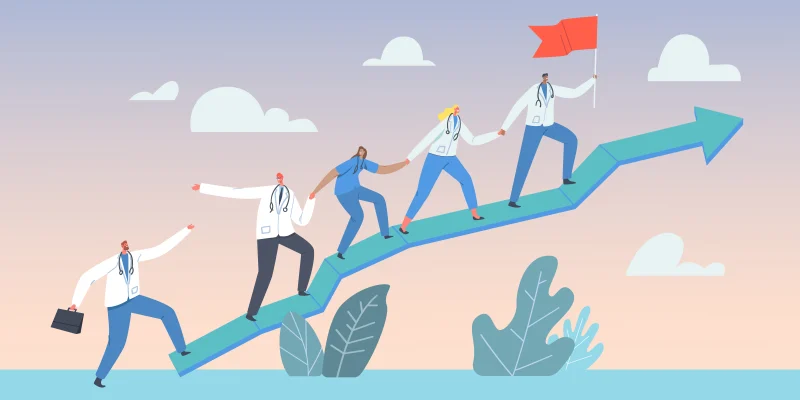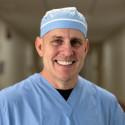A Poem & Conversation with Frank Cusimano
This is part of the Medical Humanities Series on Op-Med, which showcases visual and literary art by our members. Do you have a poem or visual art piece you’d like to share with the community? Send it to us here.

I envision a day
a day full of smiles,
when you can walk through the halls
not a frown for miles.
It is so common to see
a grin of defeat
when you glance at your peers
a shuffling gaze staring at their feet.
But what we see
and what we envision
are only part of the story
only a snap shot into the incision.
A cut so open,
fragile with each movement,
stuck where we are
not aware of any improvement
But I envision a day
a day full of pride
when you walk into the hospital
excited to help others,
an air of purpose in stride.
A stride I remember before
one I still see in the past
a stride each student had
before life was so fast.
From day one we are taught
that the pace of medicine is endless
that we should make friends
but we move to residency friendless
In a mission to survive
to keep our head above float
we kick and stay silent
we push off that feeling in our throat
But some find their way
they find balance and meaning
they take care of themselves
they confront each negative thought
with empathy and screening
They know why they started
they are reminded of the cause
the vision to help and serve
not even burnout can cause pause
But in the future I see
a more humane way of teaching
a method of compassionate emersion
no brash screeching or preaching
A model where students learn
a model where instructors show passion
a model where students stay healthy
a system that breeds empathy
and compassion.
It focuses on the small things in life
It focuses on human connection
because what good is a doctor
if they can’t offer truth and affection
Medicine is a science
something we have drilled in,
but we can’t forget it is an art
something we have to foster within
A training so comprehensive
it goes beyond facts and papers
it teaches mindfulness and mediation
for both our patients and our class neighbors
With a focus on health,
with pleasure and satisfaction
we emphasize exercise and nutrition
and teach how to ignore distraction
For so few things in this world
are worth giving up our own health
even the selfless service to others
isn’t worth any monetary wealth.
And so I still envision that day
that day that I know will come
when all medical students are proud
of how far they have come.
What inspired this piece? And why did you choose this form for this topic?
Poetry comes to me, writing is cathartic and when I do not know how to voice my thoughts and ideas, I write. As a dual degree student, I spend a lot of hours in the lab and while I normally work on things between experiments, I find occasionally poems just come to me. I have written several pieces lately about the hardships of medical education, but this one to me looks at the future. After residency, I plan to continue in medical education and I have already begun thinking about ways in which I would want to teach and restructure the curriculum to fight the overwhelming stress, anxiety, depression, and burnout that plague the young professionals of our great profession.
How did you get into poetry? How does this relate to your medical practice?
I have always been creative in nature, I have worked as a bioartist, I write frequently, I was an actor growing up — poetry isn’t something I planned or tried to do, poems just come to me. While it doesn’t relate directly to my practice yet, it does give me an avenue to share my thoughts, feelings, emotions and to give a voice to those who tell me how they are feeling. I plan to use these topics in the future when I work in medical education.
Is there anything else you’d like to share about your poetry or other creative outlets?
I think narrative medicine is an underutilized resource that physicians do not get the time to stop and think about enough. I just finished a piece on how medical schools can incorporate training in the Arts and Humanities in medical education for a peer review journal, but it has yet to be published. Having my own podcast and my own team who works on the website ‘Surviving Medicine’. I have learned that expressing your ideas and emotions is not only beneficial for the writer, but the readers who connect with it, who see that they are not alone. If you are interested in speaking out or writing anonymously I’d love to hear your story and spread it to our Surviving Medicine Community through social media, our blog, and our Podcast.
Frank Cusimano is a third-year medical student and third-year PhD candidate at AZCOM and Columbia University, respectively. He is the host of the Surviving Medicine Podcast and you can connect with him at his Blog, on Instagram, or on Twitter. Feel free to join the SurvivingMedicine Community of medical students and physicians.
